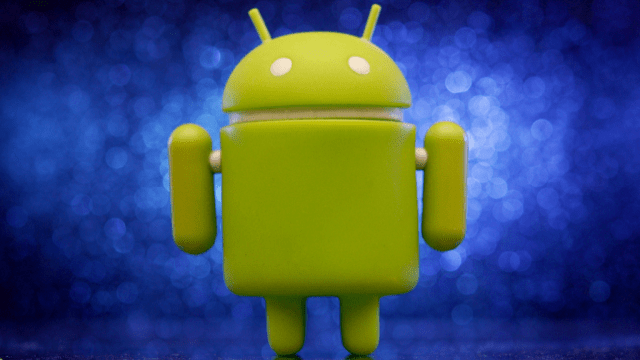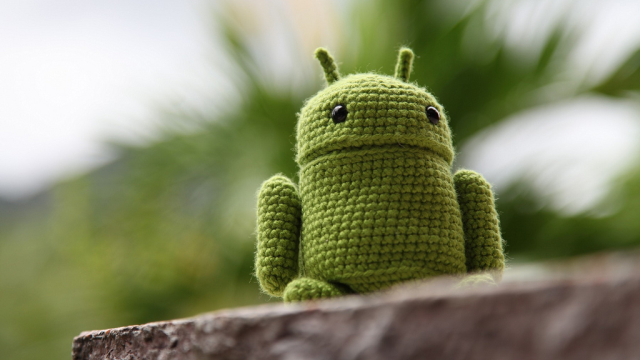There was a time when buying a cheap Android smartphone was as good as burning your cash. But Android has come a long way since then, especially with 4.4 KitKat optimised to run better on low-end hardware. So are low-cost Android phones still a waste of your money?
Photos by Brian Hagen, JD Hancock, Rob Bulmahn, Kham Tran
What You Can Expect In Low-Cost Android Phones

Screen
When it comes to the screen, low-cost Android devices usually aren’t as high-resolution, and they’re unlikely to be bigger than around 4.3 inches. They can also suffer in viewing angles, and don’t come with scratch-resistant glass covers.
Performance
Generally, you can expect these smartphones to be running on an ARM A7 processor by Qualcomm or Mediatek (either dual-core or quad-core) and 1GB of RAM. The performance is good enough for most daily tasks like calling, texts, email, browsing and social networking. But if you want to play the best games or perform resource-intensive tasks, your phone won’t keep up with you as well as higher-priced flagship models.
Battery
The lower-power hardware does mean they will have better battery life, though, especially if they run KitKat. You will find that most Androids come with around 2000mAh batteries or more, which are enough to easily take them through the day.
Camera
The camera is almost certainly going to be a disappointment in cheaper Androids. That odd selfie and the posed shot of your friends? Those are fine. But don’t try to capture a candid moment with these handsets — the camera’s optics and the phone’s processor severely limit the quality of your photos. And don’t even think of photos in low-light environments.
Software
Historically, low-cost phones have never been supported by a company beyond the first update either, which means if you get a phone with Ice Cream Sandwich or Jelly Bean, you are probably going to be stuck with it for the rest of the phone’s life. But these updates are less important than they once were, so that may not be a huge problem. Plus, depending on the installed user base of the phone, you might also find custom ROMs to support it. Before you buy a phone, it’s a good idea to search for that model on XDA Developers Forum.
Storage
The biggest problem that plagues low-cost Androids is that they usually come with 4GB of internal memory. Sure, there’s a microSD slot to expand that, but with KitKat, you cannot install apps on it. So of that 4GB, about 2.5GB is going to be available for you to install apps, which is severely limiting.
This shouldn’t be a big deal for those who use their phone for basic purposes — think of your tech-challenged friend or parent whose only needs are calling, texting, email, Angry Birds and photos. But if you play a lot of games or habitually try out new apps, the limited memory of low-cost Androids is a major bottleneck.
The only way to install apps on your external memory card is if the app in question has been made with certain rules that Android 4.4 requires — right now, that does not include several popular apps including Dropbox, WhatsApp and most games. Plus, apps that come pre-installed on your phone can’t be moved either; and their eventual updates will be installed on the internal memory too. So whether you use Google+ or not, it’s going to use 55MB of memory — and that’s not including cached user data!
There are already a few workarounds such as SDFix to install apps on SD cards, but all of these currently require your phone to be rooted. Again, that’s going to be a problem for the average user.
When Low-Cost Androids Are Worth It

Despite these limitations, low-cost Android modelss are good phones for:
- Those who need a basic phone for calling, texting, email, browsing, social networks and IM
- Those who won’t be playing many games on their phone beyond the odd round of Angry Birds or Candy Crush Saga
- Those who have access to a tech-savvy user who can help “fix” their phone when they run out of space
When Low-Cost Androids Are A Waste Of Money

Low-cost Androids are still not worth it for:
- Those who want to play games or use their phone constantly for different tasks — multi-tasking between many apps will cause these handsets to slow down
- Those who want a great camera to shoot photos all the time and capture candid moments
- Those who like to tinker with their phones and check out new apps and games all the time
While a cheap Android may not be for everyone yet, it seems like we are quickly approaching a point where it’s good enough for most average users.

Comments
12 responses to “Are Cheap Android Phones Worth It?”
I bought a couple of Huawei Ascend Y300’s for my wife and myself… brilliant phone for the cost, does everything we will ever need a phone to do..! 🙂
You should have a look at the y350 model_serious upgrade
Wasn’t available at the time, as far as I know, otherwise I probably would have…
I have a Y300 and it’s given me all sorts of trouble. Caveat: Bought it new in box off ebay as a ‘factory refurb’, could instead be a known faulty device reboxed….
@Timmahh, how much do you use your phone? I find it struggles with multi tasking or flicking back and forth between apps, listening to MP3s and browse web site causes the UI to lock up, or possibly the touch screen to lose power. Also if I turn on mobile data and turn it off again, I can no longer send texts or phone calls until I reset it. can receive them though
Yeah, we don’t use ’em for anything more than making or receiving calls. We don’t even make that many calls… I bought ’em because they were cheap and did everything we needed, but I will say they are short on memory, not that we need that much.. 🙂
Thanks, yeah I think it’s an OK phone if you stick to the basics. It’s possible I was trying to make it do too much!
Cheap is in the eye of the beholder. I’ve had some Apple fanboys say that Apple phones are cheap (FYI I’m an iPhone user).
There’s a new kid on the block in cheap Android phones – the one plus one. For what it does, it might be considered cheap. Ars LOVED this phone,
http://arstechnica.com/gadgets/2014/07/oneplus-one-review-big-fast-cheap-open-efficient-and-unlocked/
The other end of cheap is “as cheap as possible, regardless of cost”. I’m yet to come across anything in this category that is ever worthwhile.
I know I will be shot down in flames for heresy of this kind, but if all you need an expensive high end phone for is to play games then you need to get a life.
Well what are you supposed to do with it then?!? Make phonecalls?!
😉
Cheap Android vs Cheap Windows Phones
At this point windows phone is way ahead and android has some catching up to do.
However, there are still some good phones around. The Huawei Y300 won the gadget show’s best budget smartphone award, and the Motorolo Moto G is under $250 and has 8Gb of memory.
As much as I love android/google (i currently own 2 android tablets, 4 smartphones, a chrome book and have had many more phones and tablets before that back to 2009) at this point I would recommend anyone looking for a budget phone to go buy Windows Phone.
Sorry, but I would. For the same price, they have more memory, run smoother, have better cameras, some even include 4G (the Nokia Lumia 625 is still under $250 if you shop around), don’t have bloatware and AFAIK there are no windows phone 8 devices with less than 8Gb of onboard memory.
Moto G is only $200 (so not a $79-$99 cheapie but still 1/4 the price of a brand new flagship), and it obviously has some compromises (camera is average, it’s thicker than a flagship and no 4G), but in day to day use I can’t tell the difference in performance between it and my Xperia Z1. Great phone.
I have an i5 as my everyday phone . I need a cheapish smartphone with a decent sized screen for international travel (local sim, email, maps, social networking). Suggestions? Was going to buy a Nexus 7 to take along over my iPad 2 but have decided that maybe a bigger phone might be cheaper and slightly smaller.